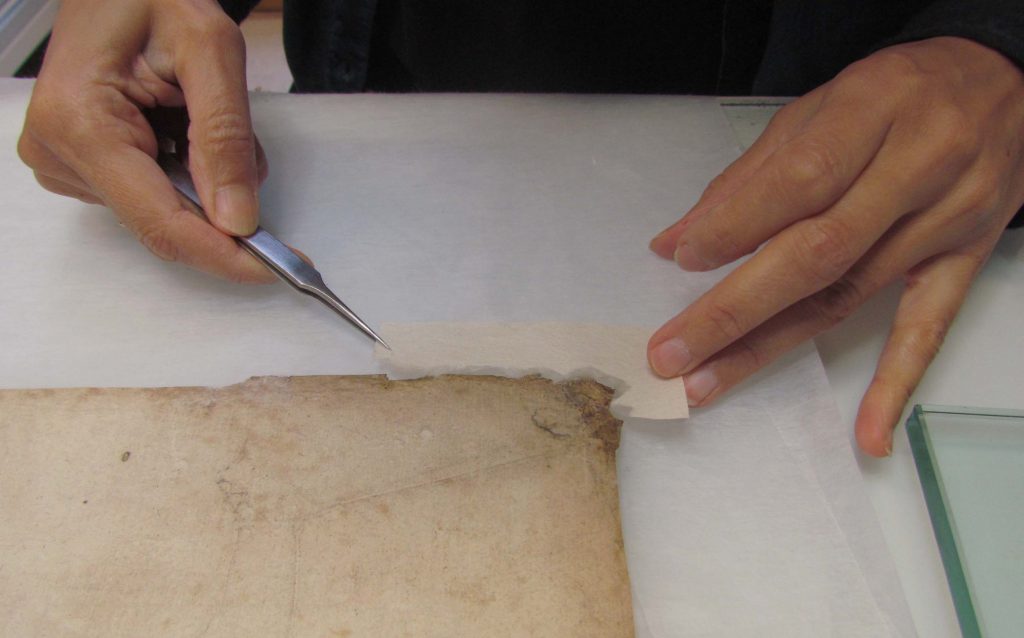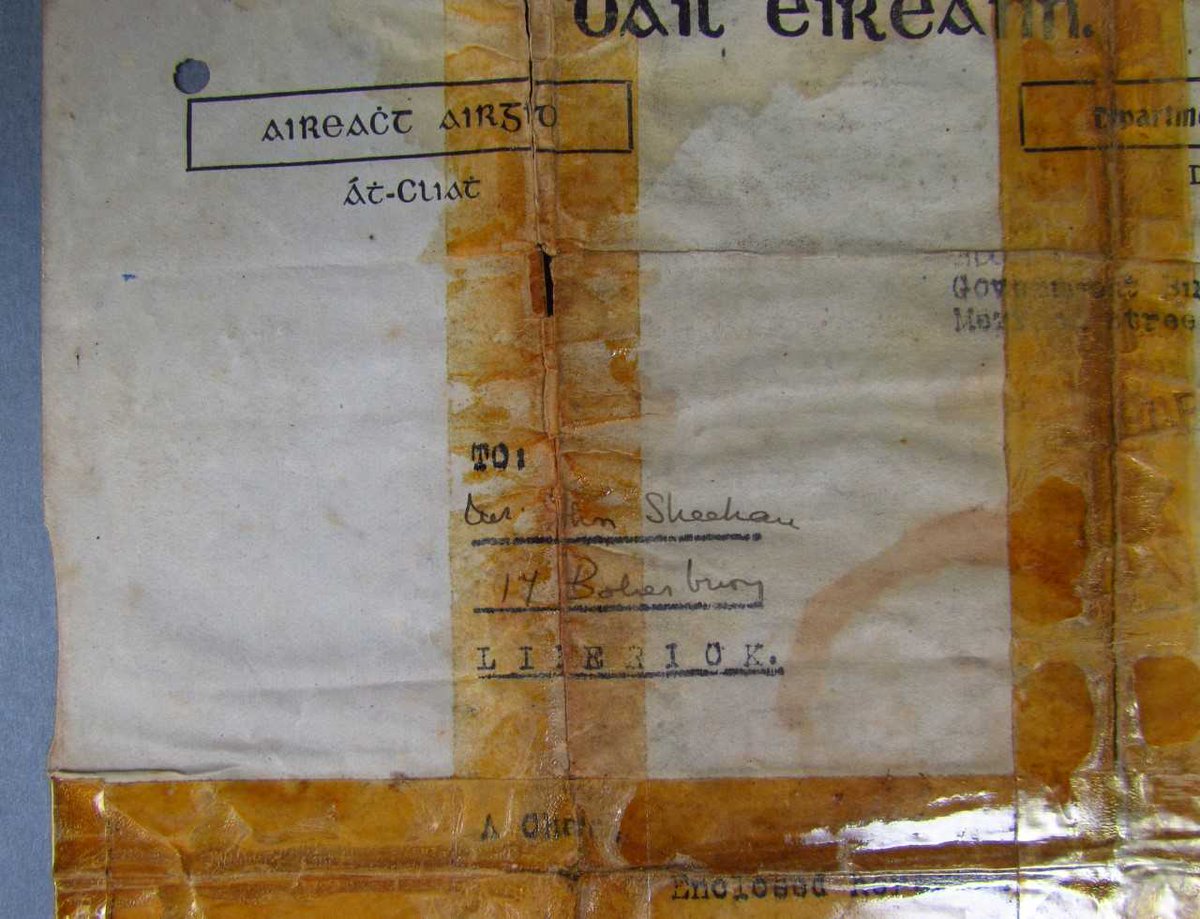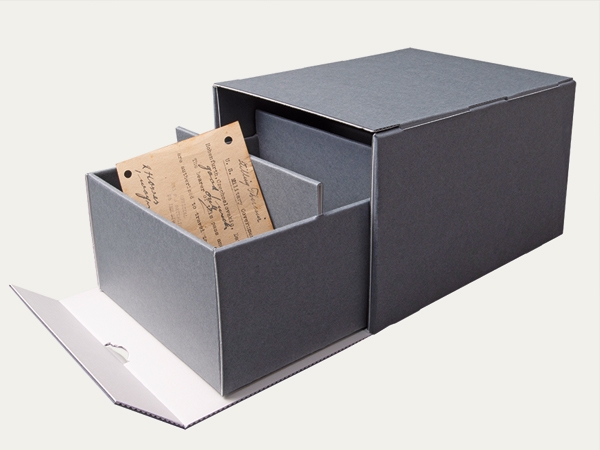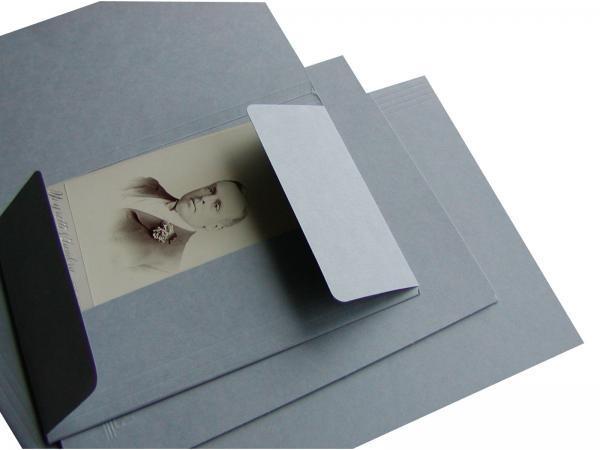Do you hang on to concert tickets, precious letters, old photographs or important family certs?  For @HeritageWeek our conservator is sharing top tips all week long on how to care for your family archives at home on a low budget. So keep an eye out for our #heritageweek posts!
For @HeritageWeek our conservator is sharing top tips all week long on how to care for your family archives at home on a low budget. So keep an eye out for our #heritageweek posts!
 For @HeritageWeek our conservator is sharing top tips all week long on how to care for your family archives at home on a low budget. So keep an eye out for our #heritageweek posts!
For @HeritageWeek our conservator is sharing top tips all week long on how to care for your family archives at home on a low budget. So keep an eye out for our #heritageweek posts!
Paper causing problems? Paper is made from cellulose. This was sourced from linen or cotton rags until the late 19th century. With the industrial revolution came new methods of making paper from woodpulp - a very cheap solution for everyday things like newspapers. (1)
As it ages, the paper becomes acidic and brittle (something is acidic if it has a pH of less than 7), yellows and releases a distinctive smell, like that from old paperbacks. It is a huge problem in libraries across the world. (2)
Limit handling your precious documents. The natural oils on our skins can be transferred onto paper surface. A well-thumbed book will often have dark fragile edges; whilst fingerprints are especially problematic for some types of old photographs. (3)
There is a huge debate in the library world on whether to wear gloves when using library collections. White cotton gloves are not the answer! While gloves can prevent oil transfer, they also reduce your sense of touch, which you need when handling delicate things. (4)
Clean hands are the best compromise – and remember rough handling will lead to creases and tears, which only get worse from more handling! (5)
Light will permanently damage any colours in your collections. It causes paper to age quicker, turning it yellow and more acidic. Avoid framing your most treasured documents and putting them on display forever. Instead take a photograph to display or use it as a reading copy. (6)
If you have something that is torn – DON’T repair yourself… and NEVER use Sellotape – or any other tape! The tape may ‘fix’ your documents for now – but it’s BAD in the longterm! If you want your object to last forever, the repair needs to last forever too. (7)
Everyday stationary supplies tapes and glues can vary a lot but in most cases, it’s the glue that’s the problem. It’s often a rubber that degrades very quickly. As a thermoplastic polymer it ages and goes through three stages – from gooey - to yellow– to crispy. (8)
The glue often ends up looking like toffee, hiding the text underneath and becomes seriously stuck to the porous fibres of paper. It is acidic (acids + paper = bad) and will turn the paper see-through and will eventually crack and breakaway. (9)
It’s also best to avoid document tapes and glues that are sold as ‘archival’, as previous form has shown us that this isn’t always the case! If it needs repairing, always consult a conservator and keep the tape for your Christmas wrapping!  (10)
(10)
 (10)
(10)
It’s simple and also pretty boring but putting your precious family archives in boxes will help their preservation! At the very least a box will protect from dust collecting on your paper, eventually sticking to paper fibres with weak chemical bonds. (11)
Normal cardboard boxes will be made from wood pulp paper that will turn acidic very quickly, creating an acidic ‘micro-climate’. Your paper collection will absorb the acids, speeding up its degradation. (12)
Normal stationary supplies are not suitable for longterm storage. If you can’t get your hands on archival card folders, then use non bleached, acid-free, lignin-free artist’s card to make your own folders. (13)
If the box is too big, the documents and prints will slouch and crease; if it's too small, they will be cramped and the pressure can lead to sticking. (14)
Store things in smaller books or folders with the edges sticking out and they will quickly get tattered, torn and will fall apart. So if you have lots of paper, organise them by size. Unfold sheets if it doesn’t make them too big. (15)
Don’t use paperclips or staples to keep items together, as they rust and eat into the paper and it’s best to remove Post-its, rubber bands, twine, paperclips and staples from the paper if you can. (16)
http://www.nedcc.org/free-resources/preservation-leaflets/7.-conservation-procedures/7.8-removal-of-damaging-fasteners-from-historic-documents.
Next – its time to divide, folder and label (yep, that exciting!) - this will protect fragile items and also make it easier to find certain sheets. (17)
Next – its time to divide, folder and label (yep, that exciting!) - this will protect fragile items and also make it easier to find certain sheets. (17)

 Read on Twitter
Read on Twitter









